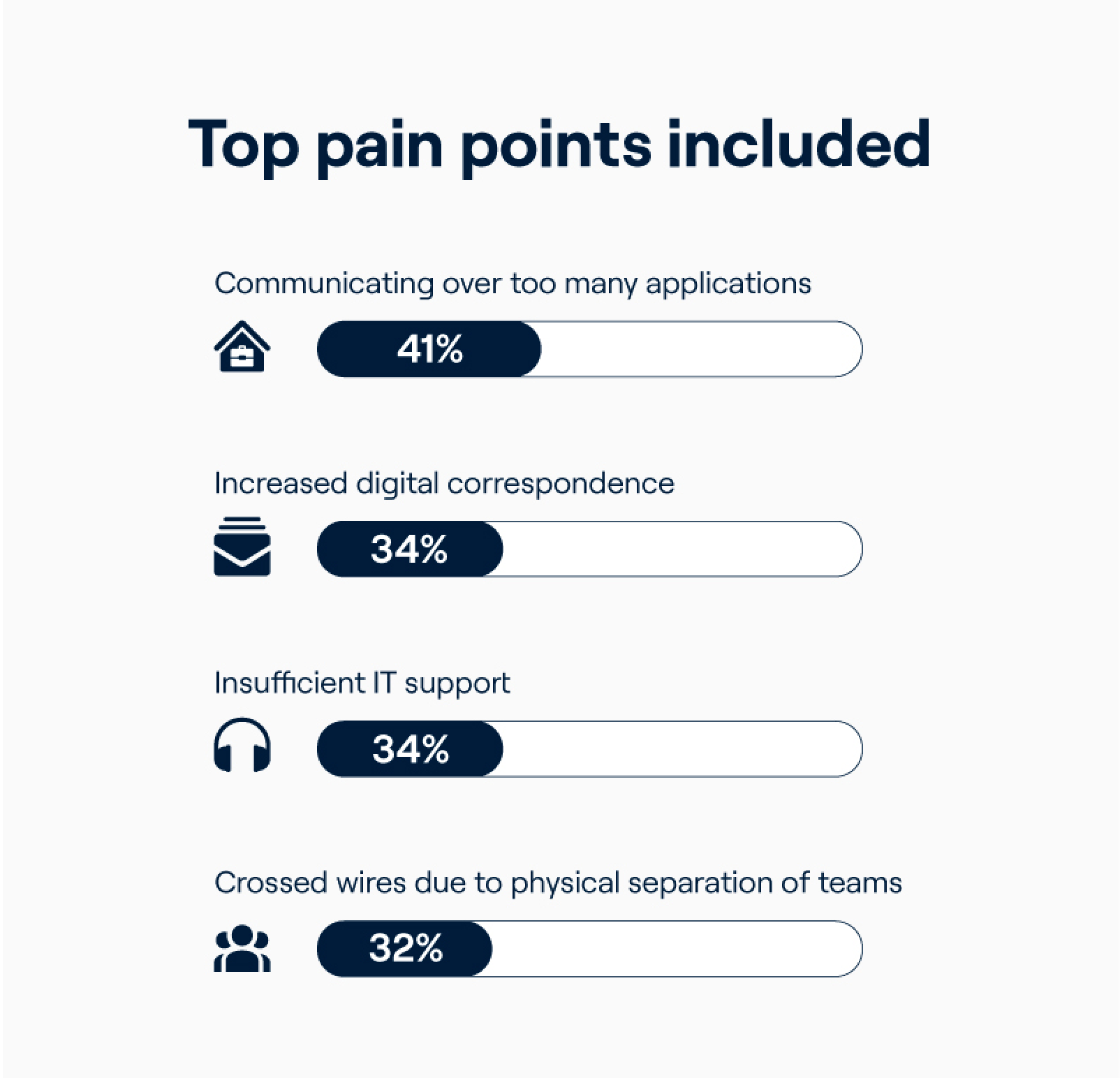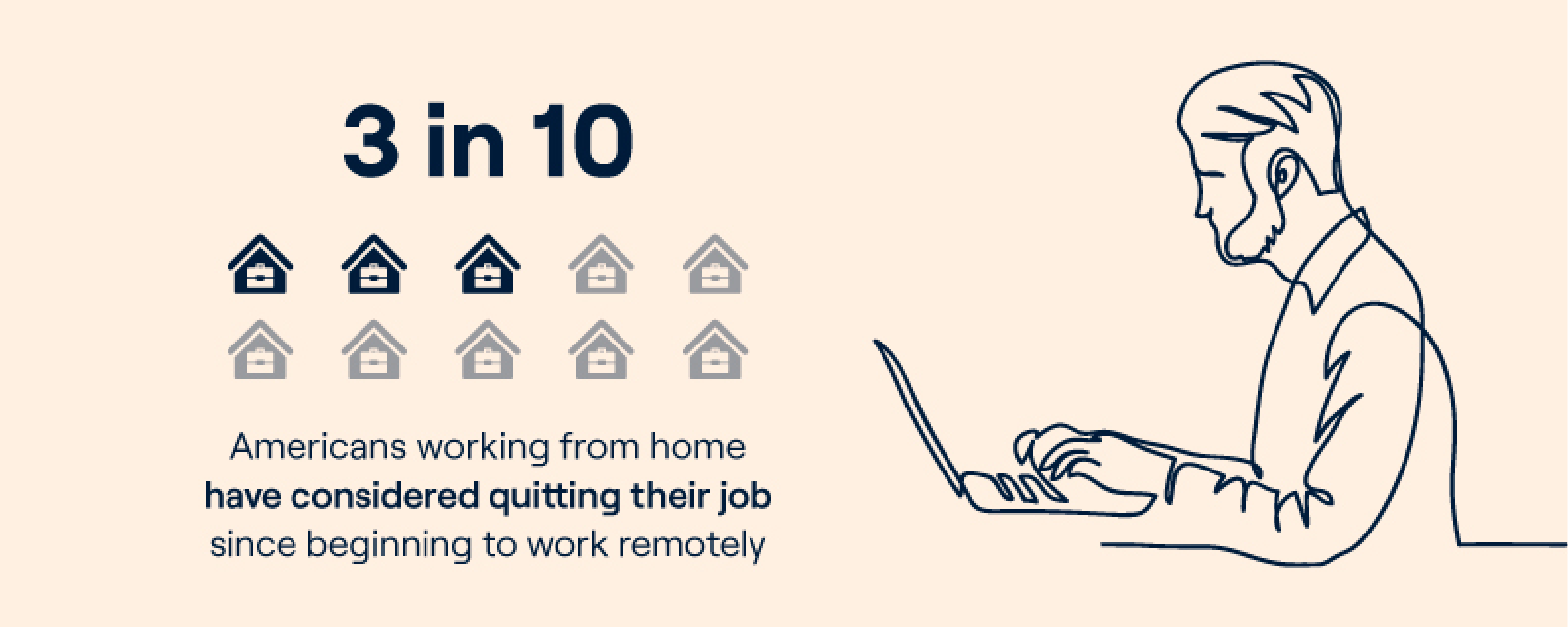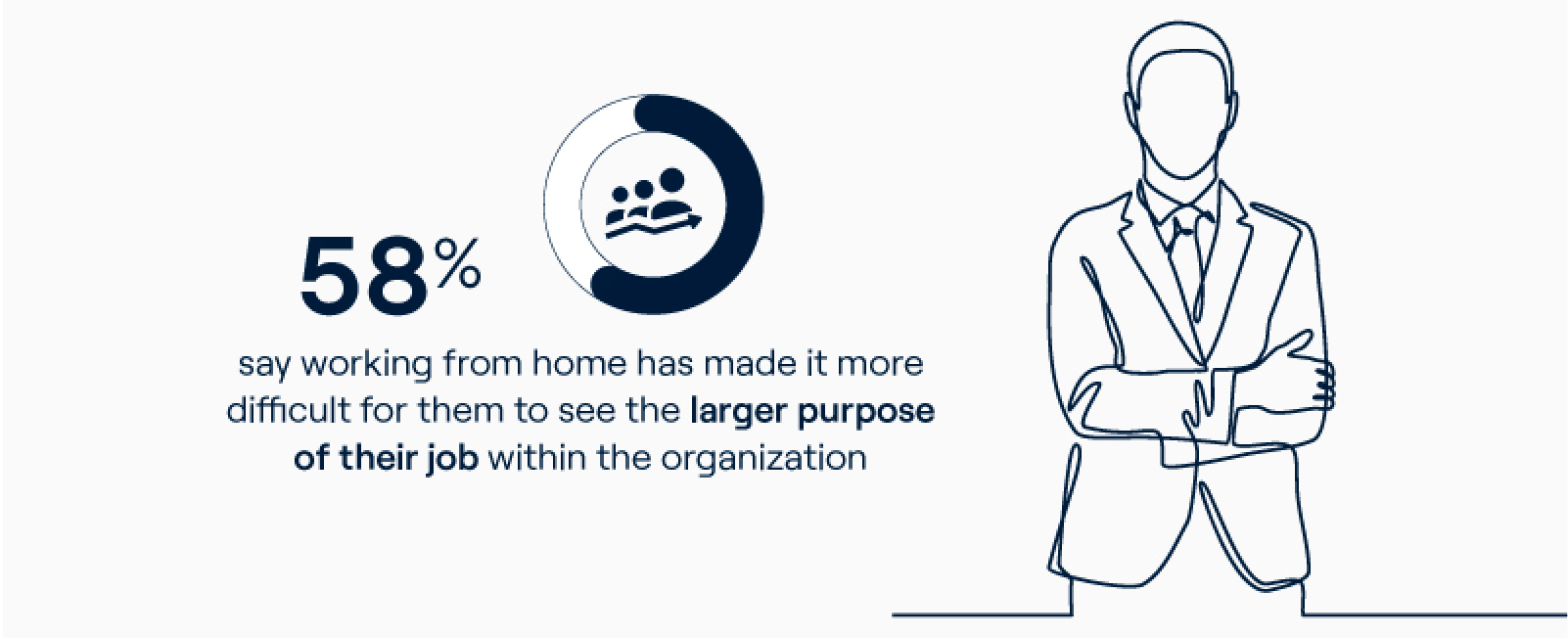The transition to remote work in 2020 has yielded a range of emotions from workers. Some are relishing more family time and a kitchen-table commute. Others are juggling toddler tantrums with Zoom calls, competing for wifi with roommates, or are simply missing an ergonomic office chair.
With such varied sentiments towards this life adjustment, we wanted to find out more. We surveyed 2,000 remote workers to hear how the change is impacting their ability to get work done, how their engagement and motivation is shifting this year, and what companies need to act on to keep employees engaged and happy at work.
Unsurprisingly, people are overwhelmed by increased communication while working remote—but there was a common thread that respondents called out for: wanting to feel more closely connected to their work, teammates, and customers.
We’re spending more time on work.

For some, working from home could mean working less than being in the office, while for others, it might mean you end up working more. Now that it’s been forced upon us all, what’s the sentiment? Are we working more or less now that we’re out of the office? Here’s what respondents say:
66% say their workload has increased significantly.
50% say they spend five or more additional hours working each week now that they are remote.
Communication apps are at the root of the problem.

It’s easy to see that we can blur the lines of work and play when our home is our office. But are there other reasons the transition to remote work is causing us to work longer hours? According to our results, communication apps are a major contributor to this problem. It makes sense: without physical proximity, we have to communicate digitally. We are relying on email, Slack, Microsoft Teams, and other platforms more—and many companies have just introduced one or more of these tools recently.
84% say their company has added 1 or more new messaging or digital communication platforms since they began to work from home.
56% say that 4 or more hours are added to their workweek from the new digital messaging tools alone.
50% of respondents say they receive more than 20 additional emails each week than they did before the transition to remote work.
Remote work is more stressful.

More working hours combined with more communication to handle is leading to more stress for remote workers. 57% report that their job has become more stressful since they began remote work. Additionally, 72% agree that while new communication tools are intended to make communication less stressful, in reality they make it more stressful by giving employees more alerts to attend to. What about communication tools is causing stress? Top pain points include:
41% say communicating over too any apps
34% say increased digital correspondence
34% say insufficient IT support
32% report that crossed wires due to physical separation of teams
People are rethinking work in general.

Do your employees enjoy their jobs? Should they enjoy their jobs? Is your company growing and succeeding? According to our survey respondents, 3 in 10 people considered quitting their jobs since beginning to work remotely this year. And, 63% of respondents agree that while they felt the opportunity to work remotely was a huge plus, the negatives of the transition to remote work have outweighed the positives. We asked why and got many reasons—these are the top offenders:
17% say their workload has increased unreasonably in a short period of time.
14% argue that lack of connection to their team saps them of motivation.
14% point to their firm’s poor handling of the transition to remote work, which gives them little confidence in the company’s outlook.
People are rethinking their individual impact.

Being physically distant from their teammates and customers is causing workers to question their individual impact. Am I using my skills to make a difference? Am I valued and needed by my company? What impact is my company having in the world?
58% say working from home has made it difficult for them to see the larger purpose of their job within the organization.
69% feel detached from teammates.
63% feel detached customers or end users.
30% say they have considered changing careers entirely in this period.
Finding solutions to detachment, overload, and stress
We asked remote workers for their thoughts on how businesses can fix these problems. We’ve always held a strong belief that clear communication in times of uncertainty can make or break a business, and many respondents to our survey agreed:
39% say enabling stronger connections between teammates.
39% say streamlining communication processes and tools.
Some concrete ways businesses build stronger connections between teammates and streamline communication include:
Communicate and prioritize. Forge clear collaboration between teammates through a digital communication tool that allows teams to not just chat with one another, but also prioritize and organize their messages. We recommend Front for this of course, but we’d also recommend building an internal communication process and guide to remote work that can serve as a living document on how teammates can communicate appropriately.
Automate inefficient tasks. You can cut down work hours by removing communication inefficiencies through automation. There are several ideas here for building automations around communication—and these help our customers save 1.5 hours per person each week on average.
Facilitate teammate bonds from the top down. When you’re remote, leadership has to make dedicated time to promote teammate communication and bonding. You can read how our Workplace Experience Manager designed a 4-day remote offsite for inspiration.
As 2020 begins to wrap up, we can all agree—this year has made us rethink many parts of our lives. For many, it’s shed light on what’s really important to us: we want to feel connected, be a part of something larger, and make an impact.
Written by Emily Hackeling
Originally Published: 20 November 2020



